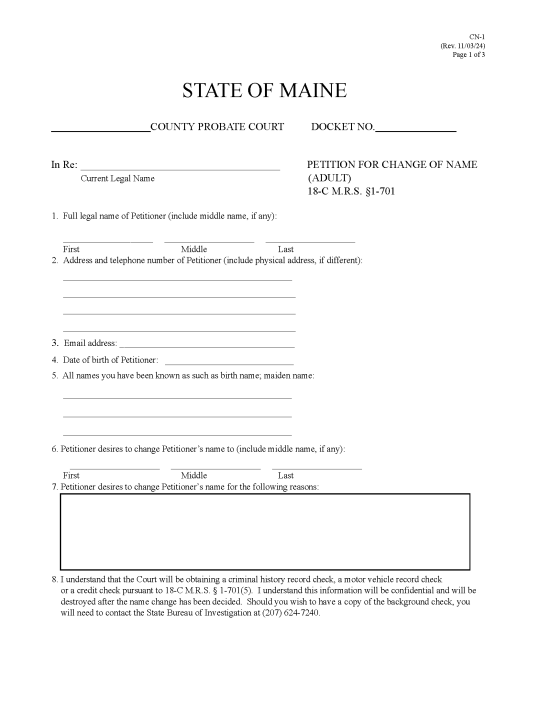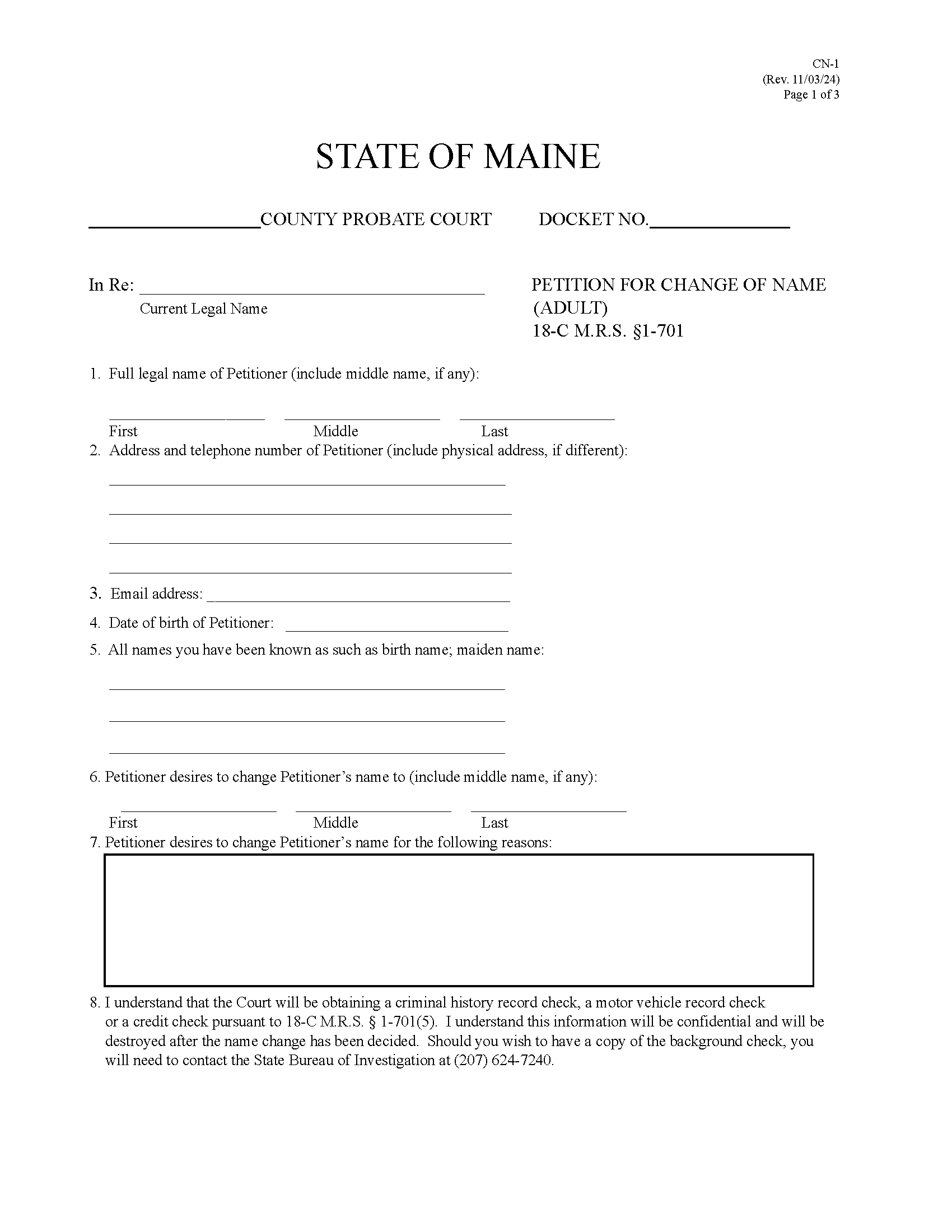Eligibility Requirements
- 18 years or older
- Live in county where petition is filed
- If a minor, must have consent from parent/guardian
How to Legally Change a Name in Maine
Step 1 – Complete Paperwork
Adults seeking a name change must complete a Petition for Change of Name (Adult) (CN-1) and an Affidavit by Adult Seeking to Have Name Changed (AF-103). Both forms must be notarized, meaning the petitioner must sign them in the presence of a notary public.
Step 2 – Prepare for Filing
Petitioners should contact their county’s probate court to determine whether any additional documents are needed. Some counties may also require the following:
- Certified copy of birth certificate
- Proof of residency (ID, voter registration card, utility bill, etc.)
Petitioners should also be prepared to pay a $75 filing fee (additional charges may apply).[1]
Step 3 – Submit Documents
Name change paperwork must be filed with the probate court in the county where the petitioner resides.[2] Documents may be delivered in person or submitted electronically through eFileMaine, the state’s online filing system. Payment is due at the time of filing.
Once submitted, the probate court will conduct a criminal background check on the petitioner. In some cases, a motor vehicle record check or a credit check may also be required.[3]
Step 4 – Notify Spouse (if required)
If the petitioner is married, the court may require them to serve a legal notice on their spouse. This condition can be waived if the spouse signs a Waiver of Notice (N-107).
Step 5 – Receive Certificate
The court may schedule a hearing for a judge to review the Petition. Attendance is not always required, so petitioners should contact the probate court to confirm whether they must appear in person
If the judge approves the name change, the probate court will mail the petitioner a Certificate of Name Change, which serves as official proof of the new name.
Marriage and Divorce
If either spouse wishes to change their name upon marriage, they must indicate the proposed new name on the marriage license application. After the ceremony, the marriage certificate provided by the clerk will serve as legal proof of the name change.[4]
During a divorce proceeding, a spouse may request that the court restore a former name or approve a new name altogether.[5]
Resources
Forms
- Affidavit by Adult Seeking to Have Name Changed (AF-103)
- Certificate of Name Change
- Petition for Change of Name (Adult) (CN-1)
- Waiver of Notice (N-107)
Links

